Dumping cat litter is illegal in most places including the UK and US, in some cases it is illegal even if you are dumping it on private property.
There are several dangers associated with dumping cat litter which is why it should either be bagged and binned, or carefully composted.
There are strict laws against dumping waste of any kind and some areas have specific laws about dumping animal waste.
It’s important to find out the laws in your area as dumping cat litter on your own land may also be illegal if local laws cover the disposal of animal waste and litter on private property.
While the specific laws around dumping cat litter on your own property can be confusing, it’s best not to risk the legalities, environmental risks and health concerns associated with dumping cat litter.
Contents
Why It Is Illegal:
It is illegal to dump cat litter because there is a risk of contaminating the environment and spreading infection and disease.
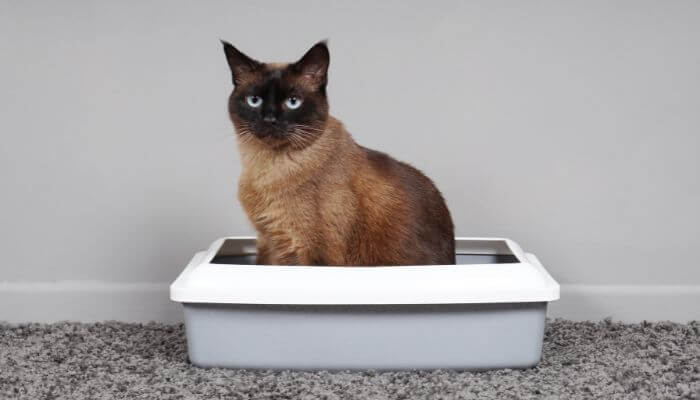
There are both health and environmental risks associated with cat litter that pet owners should be aware of:
Health Risks Of Dumping Cat Litter
One of the biggest risks of dumping cat litter is the parasite Toxoplasma gondii.
T.gondii can infect anyone and can be seriously harmful to pregnant women, their unborn children, and people with compromised immune systems.
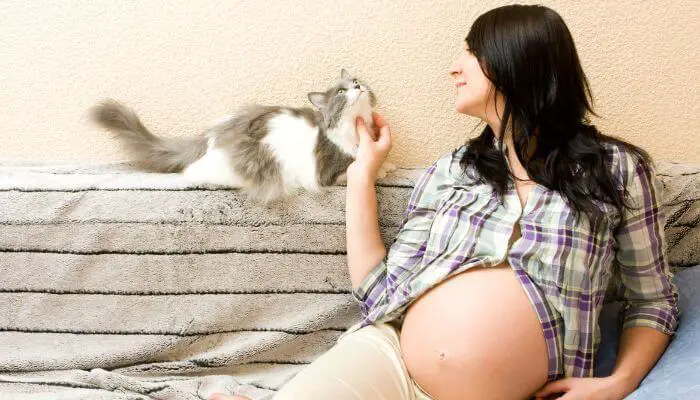
When cat litter is dumped outside this parasite can remain active for over a year in the environment and can spread, especially if it gets into nearby water supplies.
This means the impact of dumping cat litter illegally is far-reaching and long-lasting.
Environmental Risks
Dumping cat litter comes with a range of environmental risks from polluting waterways with ammonia and other pollutants to spreading the Toxoplasmosis parasite.
Due to the hazards associated with cat waste and litter it should always be disposed of properly.
What To Do If Someone Has Dumped Cat Litter Near You
The illegal dumping of any waste, including cat litter, needs to be reported.
The first step should be to call your local authorities as they will be able to help deal with the issue or direct you to the appropriate service.
If you are in the UK:
If you notice someone is dumping cat litter, it is necessary to report it.
If someone is illegally dumping waste you can report this on the government website.
In the UK, dumping waste is illegal and can be reported to the local council.
You may also want to talk to the Environment Agency or Natural Resources Wales to report issues that are damaging or polluting the natural environment.
If you are in the US:
First, report the issue to the local authorities.
In some cities in the US, you can call 311 to report issues such as the dumping of animal waste.
The complaints can then be forwarded to the relevant service.
The 311 system can be used to report issues with animal waste, the way the report is handled will depend on the issue and the waste location (reports can be made regarding sidewalks, parks, and private property).
If your area does not have the 311 service, contact the local authorities.
Alternatives To Dumping Cat Litter
Disposing of cat litter can be hard, particularly if you have limited bin space available.
Below are some options to dispose of cat litter safely and efficiently:
1. Composting
Composting cat litter is an excellent option if you are using biodegradable litter such as corn-based, paper, wood pellet, and walnut-shell litter.
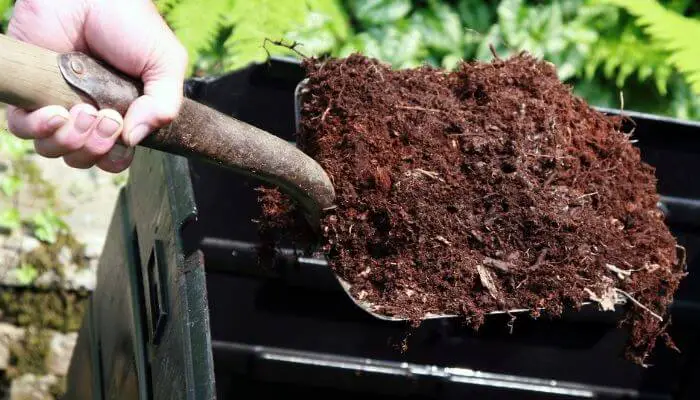
This is one of the most environmentally friendly ways of disposing cat litter as long as you know how to compost it safely.
Clay and silica-based cat litter are not suitable for composting and will need to be bagged and binned instead.
As there are risks associated with composting cat litter it is important to carefully manage your compost to reduce the chance of spreading Toxoplasma Gondii.
Due to the risks of contamination, don’t use the cat litter compost on or around edible plants.
2. Bag & Bin It
Composting cat litter is not always a feasible option, in this case, the best way to dispose of cat poo is by placing it into a bag, sealing it and putting this into the general waste bin when full.
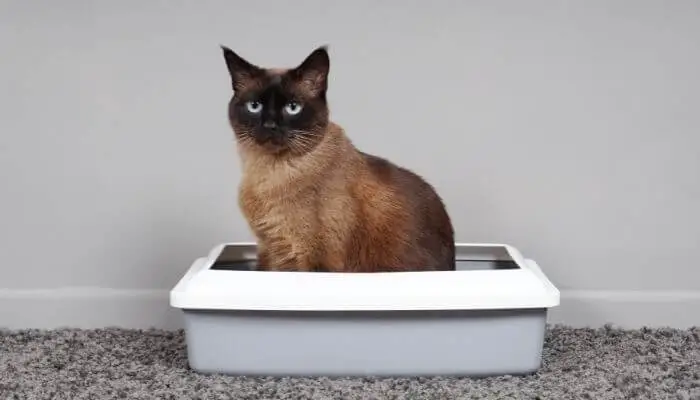
If you’re looking for environmentally friendly options, choose a biodegradable bag, a sealed paper bag, or wrap the waste in newspaper.
These options will securely hold the cat litter but will also disintegrate effectively when in landfill, making them a good choice for the environment.
As the bagged waste will be sent to landfill this prevents putting people, pets, and other animals at risk.
Throwing cat litter into the bin may seem counterintuitive but in some situations it is the safest and most appropriate way of disposing of it.
Bagging and binning litter helps to avoid polluting waterways and contaminating gardens/ outdoor spaces.
3. Don’t Flush It
While flushing cat litter may seem like a good way to dispose of it, it is not.
Cat litter often expands and is likely to cause clogged pipes and toilet blockages.
Even if the cat litter type is “flushable”, it can still cause a number of issues if it is flushed.
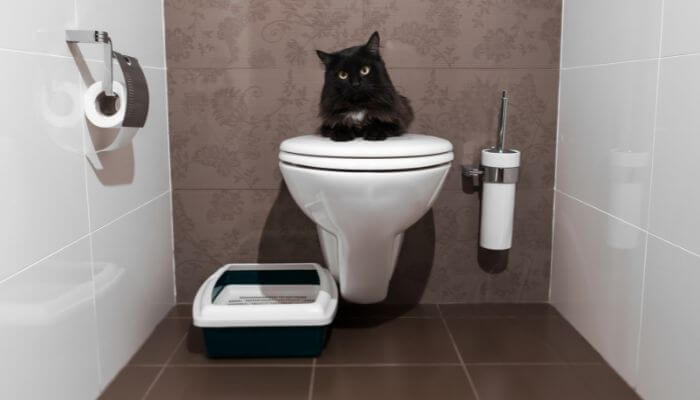
When flushing cat litter there is a risk of spreading Toxoplasma Gondii.
Toxoplasma is a hardy parasite that is even able to survive some wastewater treatment processes.
It is hardy and can damage ecosystems.
Toxoplasmosis is particularly dangerous to marine life and can infect shellfish, otters, and birds.
If you flush cat litter the risk of contaminating water sources and clogging pipes is high so it is better to dispose of the litter in another way.
We recommend you put cat litter in the bin or compost it, even if it is advertised as flushable.
4. Don’t Burn It
Never burn cat litter and waste. Firstly, cat litter does not burn well and secondly, it may release toxins that are harmful to health.

In addition to these issues, the cat litter will not actually burn away, instead it will clump together at the bottom of your barrel.
This leaves you with a clump of cat litter you still need to dispose of.
Burning cat litter is not a good solution.
It won’t save time or effort and can be harmful to your health.
Tips On Disposing Cat Litter:
- Check the ingredients of the cat litter to ensure it is biodegradable before you compost it. Some cat litter says “environmentally friendly” but this does not necessarily mean it can be put into the compost.
- Don’t put cat litter compost on or around edible plants, even if you remove the faeces from the litter before composting it. This is because of the risk of toxoplasmosis and the fact that cat urine will likely damage the plants.
- Don’t dump cat litter outside.
- If you scoop cat litter into the bin it’s important to bag it up and secure it to ensure cat litter dust and faecal traces don’t enter the air each time the rubbish bin is opened.

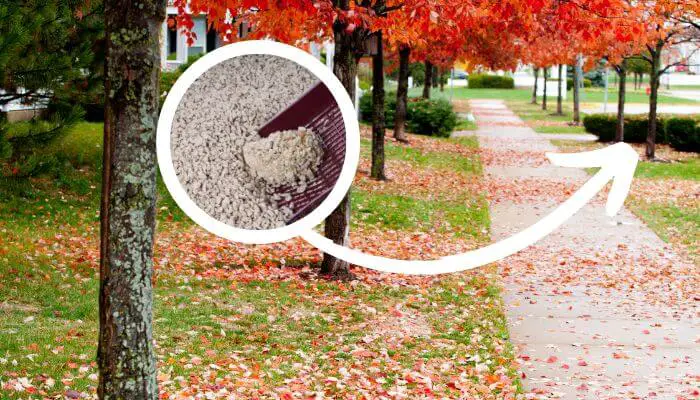


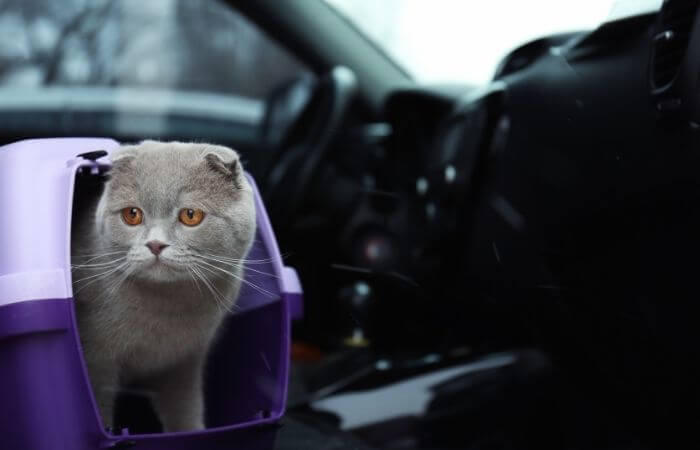
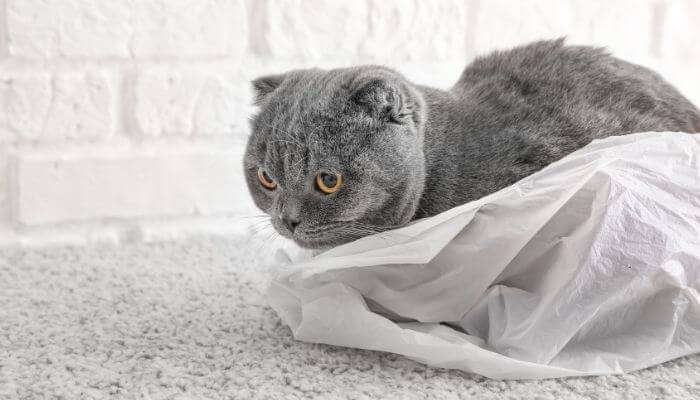
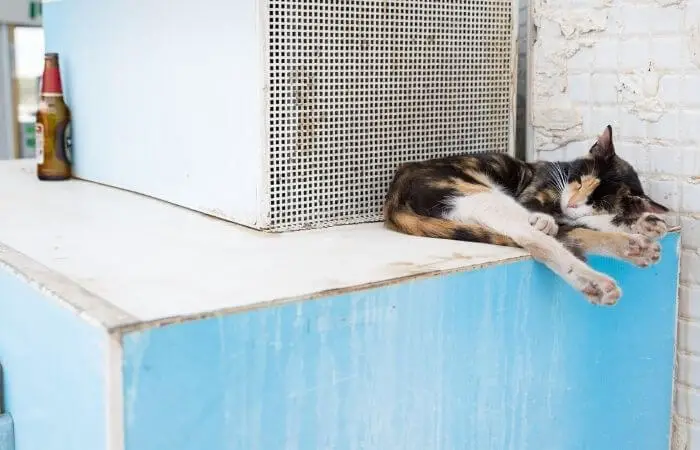

Leave a Comment